The new television season is upon us. African American and Latino groups are making the expected protests about the lack of people who look like them before and aft of the camera, and the Jews are — as usual — adding up their TV IQ on the fingers of one hand.
If there aren’t many “brothers” out there, there are even fewer “Members of the Tribe,” and those that are there are not particularly Jewish Jews, if you know what I mean.
Take 40-something, newly divorced father “Danny,” played by Daniel Stern. In CBS’ new series, Danny looks like he’s Jewish, sounds like he’s Jewish, but his live-in father is played by Polish American Robert Prosky, and his kids Sally and Henry come across as just, well, kids.
Ah, but wait, Danny is described in the program notes as “adapting to his single life one neurotic step at a time.” Neurotic is television-speak for Jew — just like “New York” as an adjective means “Jew” in the Midwest.
The whole subject makes the producers of the show, which, by the way, is set in that hotbed of neuroses, Portland, Ore., a trifle nervous. “It’s implied,” one of the show’s producers told The Journal. “It’s not an overt kind of thing. You don’t get it rammed down your throat. It’s not about his Jewish life — it’s about his life.”
Actor Daniel Stern himself, however, seems more relaxed about the idea of playing a Jewish man with a thing about basketball. “I was happy to be Jewish on the show,” he said. “And I like sort of putting it out there. And I want to put it out there in a sort of funny way. I thought that might be something that I hadn’t seen.”
That’s because he hadn’t seen the pilot for “Inside Schwartz” (see below). Adam Schwartz is also Jewish and a basketball nut. It’s not implied — he tells you that right off the bat, even though he’s played by non-Jew Brekin Meyer.
“I want to be the first Jew to win the slam-dunk contest,” Schwartz declares in the pilot episode. His more realistic dream is to become a sports announcer. Even if he hadn’t told us, we’d know he was Jewish, because his sidekick is a perfectly marvelous young Jewish woman played by Miriam Shore, who is ready and waiting for him to make his move on her. (We know she’s Jewish because she’s smart-mouthed and quirky.)
Executive Producer Stephen Engel says he wasn’t sure how the network would react to a show built around a Jewish character. And he wasn’t the only one.
“My father called while I was doing the show,” Engel said. “He said, ‘You know I don’t interfere in your work, but this show you’re doing, are you sure about the title? You know Schwartz is a Jewish name. I don’t know how the rest of America [is] going to respond to this.'”
Of course the central joke only works if the character is Jewish. Jews and sports — an oxymoron, right? And that was the point, as far as Engel was concerned.
“I like to consider myself a fairly good athlete,” he said. “I’m not a professional yet, but I haven’t given up hope. But there are Jews across America in sports. One right here in right field in Los Angeles.” (For those not into sports, that would be Dodger Shawn Green.)
Jason Alexander, one of the Seinfeld crew — the most successful Jews-who-dare-not-speak-their-name in TV history — is playing a Tony Robbins-style guru in ABC’s “Bob Patterson.” Patterson may or may not be Jewish — but he is kind of a lovable jerk. If in a future episode we find out the name used to be Futterman, be prepared to cringe.
Mike Binder, however, former stand-up comic star and creator of HBO’s “Mind of the Married Man,” is undoubtedly Jewish, although it’s never stated, and he’s married in the show to a gorgeous blonde Englishwoman, played by Oxford-educated Sonya Walger.
Binder grew up in a Jewish community in Detroit, and made a 1993 movie about his summer experiences at the Jewish Camp Tamakwa in Ontario (“Indian Summer”). He even wears a Tamakwa sweatshirt in one scene in the new show. But the character is just another narcissistic, sports- and sex- obsessed American male. And you don’t have to be Jewish to be that.
On the other hand, Max Bickford, professor of history in CBS’ “The Education of Max Bickford,” doesn’t know from sports. His is the ivory-tower world of old European white males to whom scholarship and love of the past is life.
And while he’s staggering under the pressure of apathetic students and political correctness, he’s doing it (from the evidence of the pilot, at least) as a slightly over the hill, all-purpose ethnic. So — is he Jewish?
“I think so, yes,” says Bickford’s alter ego, Richard Dreyfuss. “He’s got an edge; he’s a curmudgeon. The way I keep describing him is Walter Matthau, but shorter.”
He’s also the most potentially interesting of the ‘Jewish’ characters on this season’s new shows, if only because Dreyfuss is noted as that rare Jewish actor who enjoys being Jewish on screen: think Moses Wine, ace detective in “The Big Fix,” Duddy Kravitz, and even Meyer Lansky.
But since this is essentially a serious show, well written and dealing with intelligent issues, just hold your breath that it will enjoy a long run. Even if it is, don’t expect Bickford to deal with his Jewishness. Having an overtly Jewish character as the lead on a drama is still seen in Hollywood as a surefire way to cut yourself off from the American mainstream viewer.
Serious shows with Jewish content have a history of wiping out before you can say, “Nielsen, Shmielsen.” Remember “Brooklyn Bridge,” Gary David Goldberg’s loving tribute to his Brooklyn bubbie? Or how about “The Trials of Rosie O’Neill,” in which Rosie (Sharon Gless) answered to a kippah-wearing, public-defender boss played by Ron Rifkin? Neither lasted long.
Comedies have a longer shelf life. Jewish humor on television is the one thing that has been accepted with open arms by the rest of America — witness “Seinfeld.” Because, whether they know it or not, just as Jewish music became Tin Pan Alley, Jewish humor, as filtered through the Catskills, Hollywood and Las Vegas, is now American humor.
Bob Hope once quipped, “Hollywood is the only town where they give up matzah balls for Lent” — a line written by one of his many Jewish writers. The point being that everyone in Hollywood is Jewish, whether they were born into it or not. Hollywood has been shaped by Jewish culture — by now that’s a sociological truism — but the only place you’d know it on television is in comedy.
From “Seinfeld” to “Mad About You” to “Dharma and Greg” to “The Larry Sanders Show,” Jewish humor has infiltrated popular culture. On television, Jewish humor is the Trojan horse sneaked into the living rooms of non-Jewish America to acquaint them with the fact that Jews are pretty much like them, only more so.
“Northern Exposure,” for example, worked because America identified with its hero — a nice Jewish doctor (Rob Morrow) plunked down in small-town Alaska, where he was the least weird of the bunch. “Picket Fences,” created by Irish American David E. Kelley, introduced the conniving Jewish defense attorney played by Fyvush Finkel. (Kelley’s in-joke was that Finkel’s character bore the WASP-ish name of Douglas Wambaugh.) In one episode, he was called before a beit din to answer charges that his sleazy behavior was damaging his people’s good name.
Ironically, Kelley wrote the episode after receiving letters complaining that Finkel’s character perpetuated the stereotype of the shyster lawyer.
HBO’s “Larry Sanders Show,” which told the truth about so many aspects of American television, also warned about the perils of being too Jewish. In one episode, Larry’s sidekick Hank (Jeffrey Tambor) became a born-again Jew, and insisted on wearing a kippah on the show. Larry’s creator, Garry Shandling, noted his favorite line in that episode was when a Jewish network executive said it was OK for him to be Jewish because, unlike Hank, “he was behind the camera where the audience couldn’t see him.”
Larry Gelbart, one of the funniest comedy writers today, says of Jewish humor, “I think it’s our cultural heritage to find some relief from intolerable situations with laughter. To use it as both a sword and a shield, as an offensive and defensive weapon against those who are being hostile to you.” It seems that in a more dangerous and difficult America, the rest of the country increasingly wants to borrow the weapon.
The good news this season — yes, there is some — is that with “The Nanny” and “Suddenly Susan” (the JAP stereotypical Vicki may have been married to a decent sort of rabbi, but she was definitely cringe material), having passed into the lucrative afterlife of syndication, parodies of spoiled shopaholic Jewish women on primetime television have given way to spoiled shop-a-holic Italian women on “The Sopranos.”
And despite rumors to the contrary, the girls on “Sex and the City” can’t possibly be Jewish: Carrie only shops retail, Samantha is a nymphomaniac, Miranda is too thin, Charlotte is married to the only Scottish doctor on Park Avenue, and they’re always picking at a salad and getting tanked on cosmopolitans at lunchtime.
In short, Jewish viewers are likely to find this season as unsatisfying as countless others. As in real life, Jews on television this year are still married to, or dating, non-Jews. It cuts down on interesting sources of conflict, according to the writers, if two characters both celebrate Chanukah and know the difference between a matzah ball and kreplach — as if the writers never noticed the surfeit of conflicts within the Jewish community.
And there are still many Jews who, while they have Jewish names and look Jewish, never identify themselves as such. But, of course, we’ve never heard of that in real life, have we?












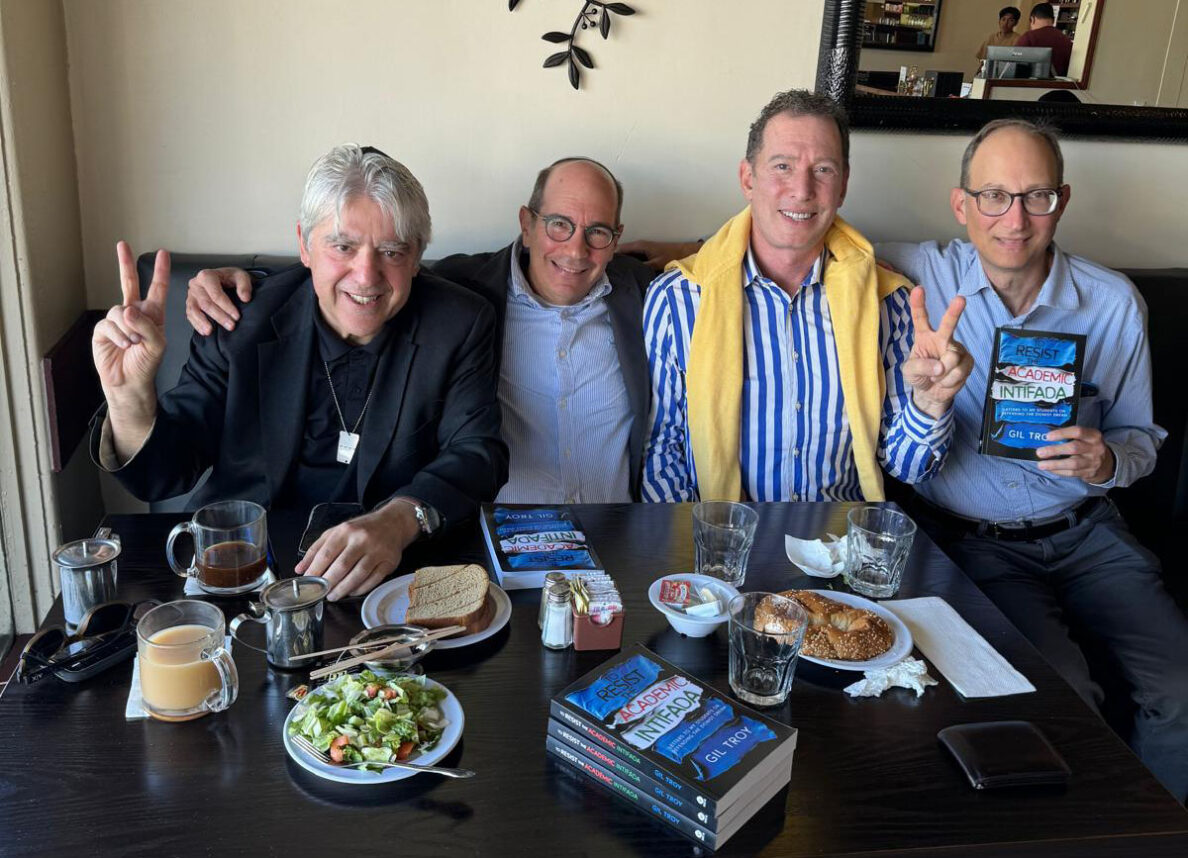
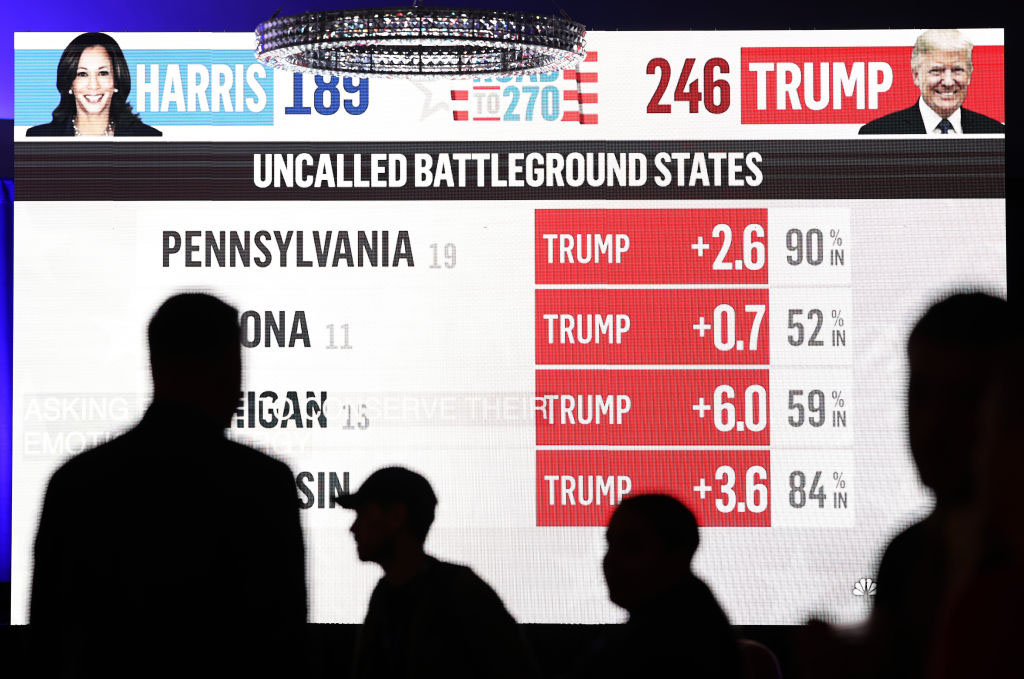


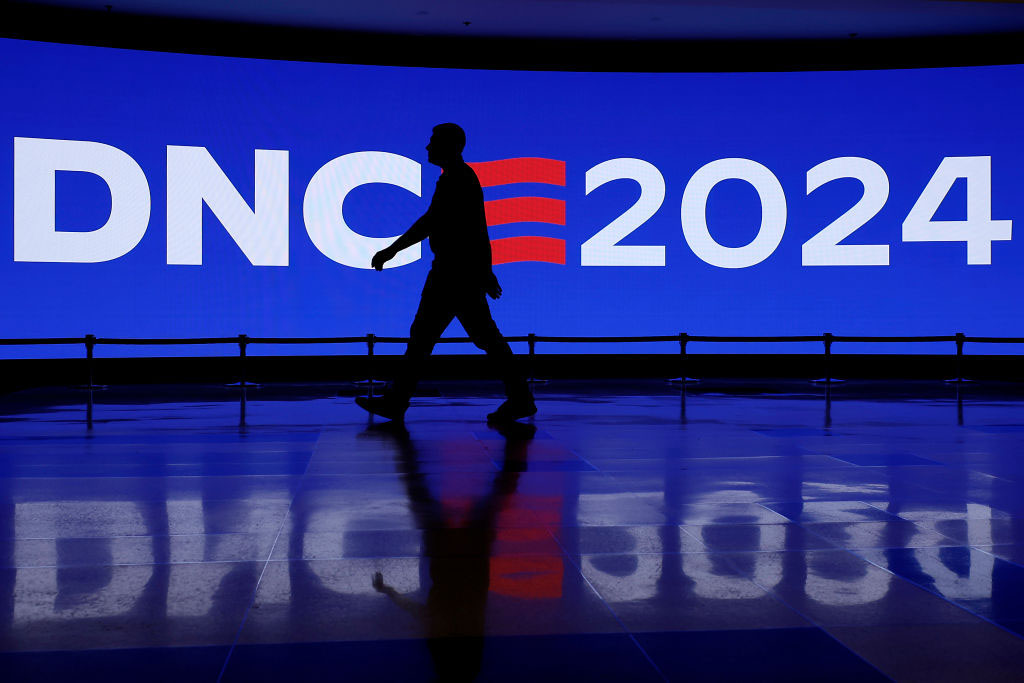



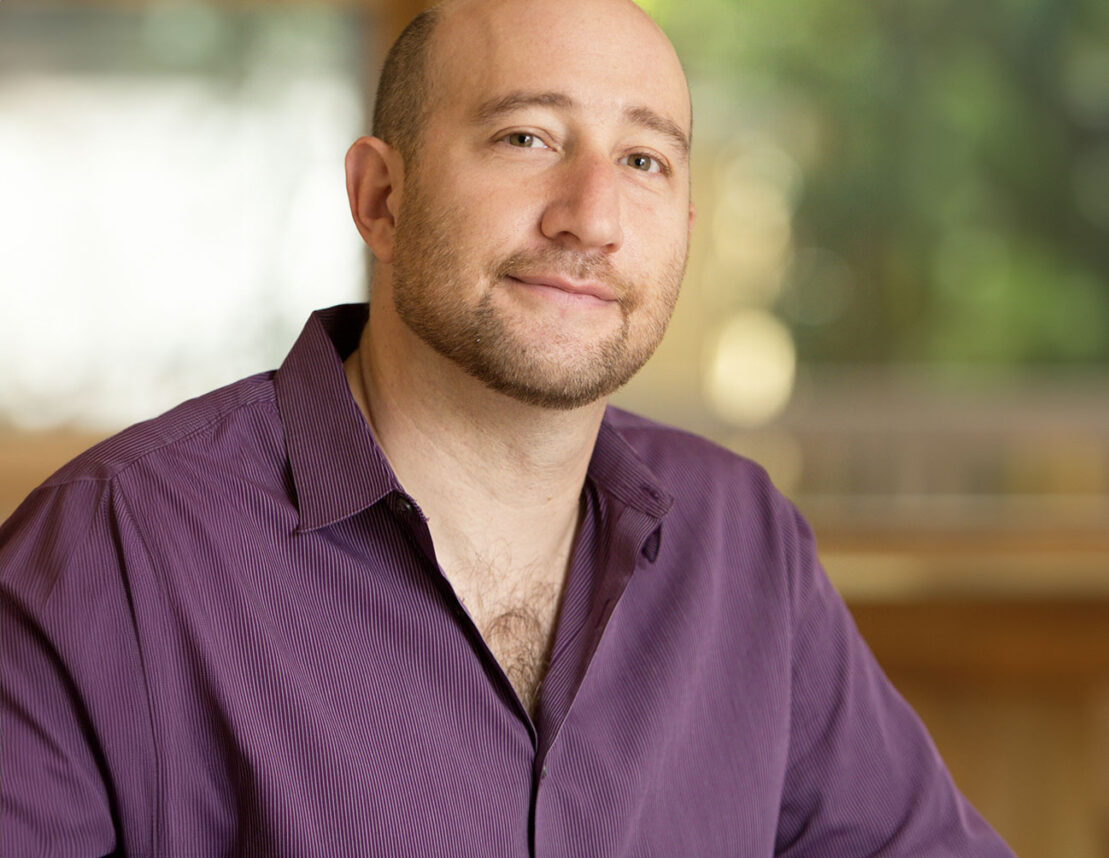
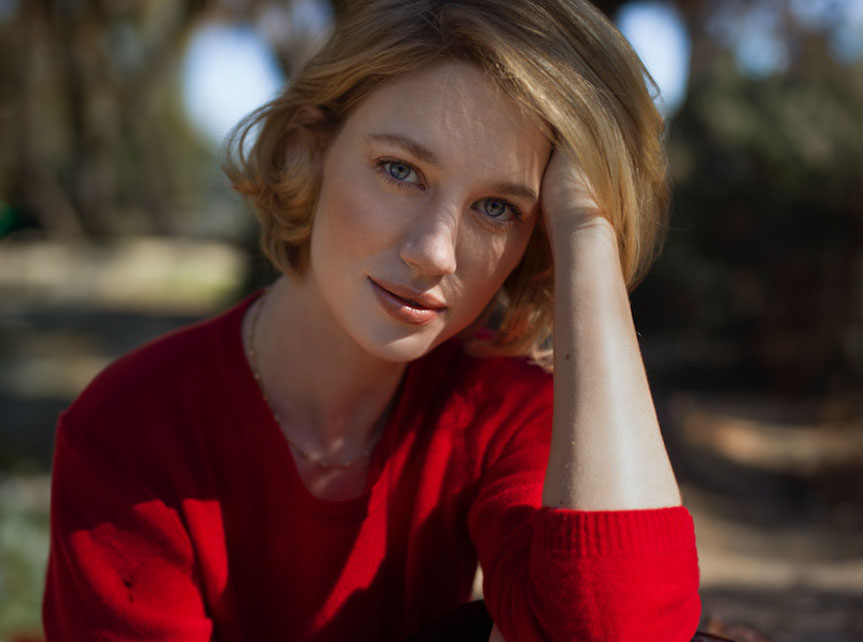
 More news and opinions than at a Shabbat dinner, right in your inbox.
More news and opinions than at a Shabbat dinner, right in your inbox.